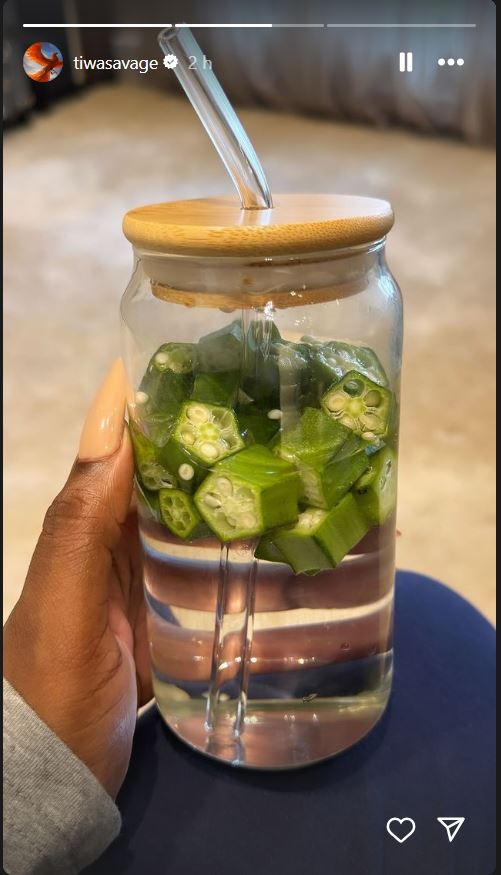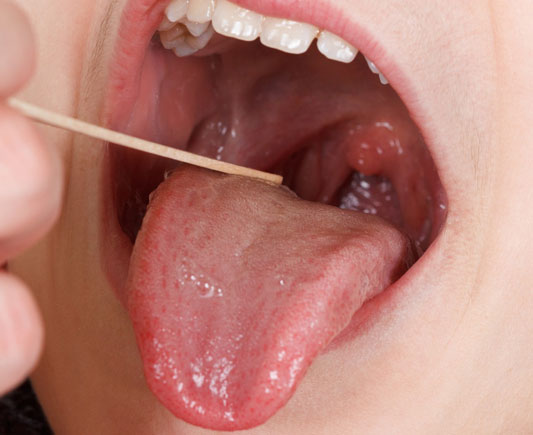Health
7 things to consider before having a cosmetic surgery

Cosmetic surgery is a type of plastic surgery that aims to improve appearance.
This includes liposuction, tummy tuck, facelift, breast augmentation and Brazilian butt lift (BBL).
There has been a rise in plastic and cosmetic surgeries across the world as more women are willing to go under the knife just to have the perfect body.
However, as with anything surgery, there are some important things and questions you need to consider before you make that move.
1. Do your research
Before you rush to book an appointment, have you taken the time to do extensive research on the procedure you want to undergo? It is best to find out as much as possible about the procedure you want. This includes knowing the name of the procedure, what the procedure actually entails if the procedure is going to achieve the result you want and whether it is the correct procedure for the body part for which you are seeking enhancement.
2. Check your surgeon’s qualifications and experience
Cosmetic surgery comes with a lot of complications and you need to be sure you are in safe hands. Ensure your plastic surgeon is board certified by the Board of Plastic Surgery.
Ask how often your surgeon performs the procedure. This is not a question of specific numbers, it is about experience and expertise. Find out what your surgeon’s relationship is with the procedure you are seeking. If your selected surgeon isn’t board-certified in plastic surgery, or in the procedure you want to have performed, keep searching.
Plastic surgeons must complete 50 hours of continuing medical education each year to ensure they’re up to date, take regular performance examinations, as well as record patient outcomes, to maintain their certification. Don’t forget to check reviews, and ask around for recommendations.
3. Timing is key
You have to be healthy before undergoing cosmetic surgery. Make sure you disclose your entire medical history to your plastic surgeon. Your plastic surgeon can’t give an accurate assessment if you hide health problems e.g high blood pressure. Also, strive to be as physically fit as possible before surgery.
For best results, consider waiting to have surgery after you are done with breastfeeding and you’ve completed your family.
4. The cost
It is not news that cosmetic surgery doesn’t come at a cheap price. If cost is a concern, ask about financing options.
Whether you are paying cash or you are financing your surgery, you have to really determine if you can afford plastic surgery. Are there other things in your life that will take a big hit if you put money toward plastic surgery? This is especially true if you are financing your surgery. Long after you’ve recovered, are you willing to still be paying off your surgery? You’ll still have to pay, even if the result is not exactly what you wanted or you have a complication.
5. Recovery
The amount of time you’ll need to take off work and your activity restrictions will vary depending on your procedure, how long surgery takes if you’ll have a hospital stay, and the type of anaesthesia used. Depending on your procedure, you may need days or even weeks to recover. You will need time off to recover after your procedure. And it isn’t just the initial aches, pains, and bruising, that you will experience, but after those have faded you may still have restrictions ordered by your plastic surgeon.
Sometimes achieving your goals may involve more than one procedure to refine the results. Following your post-op instructions to the letter will ensure a smoother recovery and a better result.
Ask about your recovery, especially the first 24-48 hours. Ask when you will be able to return to work, when you can return to strenuous activity such as exercise, and how long until you should start to see your final results.
6. Know the risks and complications
You need to know the possible complications that come with the particular procedure(s) you are having.
There is a risk to any surgical procedure and you should be fully aware of all the risks before choosing to have your procedure. Another risk is that despite perfect technique or what is considered a good result by a plastic surgeon, you may not be happy with the final result.
7. Have realistic expectations
Your plastic surgeon can only control what happens inside the operating room. No matter how great a job your plastic surgeon does, it will not guarantee a job promotion, a relationship, or an improved social life or social status. Plastic surgery will not cure depression or eating disorders.
Approach your cosmetic surgery with realistic and hopefully attainable expectations. The surgery will not transform your life in a monumental way, but rather improve a body part that bothers you. If you are planning plastic surgery with desires like finding a spouse, saving your marriage, or conquering the world, don’t do it, because it won’t work, and you will be unhappy. If there are doubts about your motives, seek advice from a mental health provider.
Health
7 health benefits of eating seaweed

Seaweed, also known as kelp, nori, or marine algae, comes in a variety of shapes, sizes, and colours.
Each variety offers its distinct taste and texture. Seaweed is surprisingly versatile and can be enjoyed in a multitude of ways.
Here are 7 amazing reasons to consider adding a touch of the ocean to your plate:
1. Nutrition
Seaweed is a nutritional goldmine, brimming with essential vitamins and minerals that your body needs to thrive. It’s an excellent source of iodine, a vital mineral for healthy thyroid function. Just a small amount of seaweed can meet your daily recommended intake of iodine, helping to regulate your metabolism, energy levels, and brain function.
Seaweed is also a good source of vitamins A, C, E, and K, all essential for maintaining a healthy immune system and promoting cell growth and repair. Seaweed is also a natural source of magnesium, essential for regulating blood pressure and muscle function, as well as iron, which helps transport oxygen throughout your body.
It contains calcium, crucial for strong bones and teeth, and potassium, which helps maintain healthy blood pressure.
2. Gut health
The human gut is a complex ecosystem teeming with trillions of bacteria, both good and bad. A healthy balance of these microbes is crucial for health and digestion. Seaweed is a prebiotic, meaning it provides nourishment for the good bacteria in your gut. These friendly bacteria help with digestion, and nutrient absorption, and even play a role in immune function.
By feeding these good bacteria, seaweed helps to create a thriving gut environment that keeps you healthy. Studies have shown that a balanced gut microbiome can help reduce the risk of digestive issues like constipation and irritable bowel syndrome, as well as strengthen your immune system against harmful pathogens.
3. Weight management
If you’re looking for a natural way to manage your weight, seaweed might be your new best friend. Seaweed contains a type of fibre called alginate, which forms a gel-like substance in your stomach. This gel helps you feel fuller for longer, promoting satiety and reducing cravings. This, in turn, can lead to a decrease in overall calorie intake and support weight management efforts.
In addition to its fibre content, seaweed is naturally low in calories and fat, making it a guilt-free way to add variety and nutrients to your meals.
4. Heart health
Heart disease remains a leading cause of death worldwide. The good news is that seaweed might offer some protection for your heart. Seaweed contains healthy fats, including omega-3 fatty acids, which have been shown to promote heart health by reducing inflammation, lowering bad cholesterol levels, and improving blood pressure.
Seaweed may also help to prevent blood clots, which can block arteries and lead to heart attacks and strokes. Furthermore, its rich supply of antioxidants helps fight free radicals that can damage blood vessels and contribute to heart disease.
5. Blood sugar control
For people with diabetes, managing blood sugar levels is crucial. Seaweed might offer some unique benefits in this regard. Studies suggest that certain types of seaweed, like wakame and fucoidan, may help regulate blood sugar levels. These seaweeds may slow down the absorption of carbohydrates in the gut, preventing blood sugar spikes after meals.
Additionally, seaweed may improve insulin sensitivity, allowing your body to utilise insulin more effectively and keep blood sugar levels under control.
Health
Five benefits of drinking Okra water

Of recent, the trend of drinking okra water has gained traction backed with compelling evidence of its numerous health benefits.
In this article, we dive into the world of okra water and uncover five amazing key benefits of incorporating okra water into your daily diet, thereby unlocking the nutritional power hidden within:
Improved digestive health
Okra water is rich in soluble fiber, which aids digestion by promoting regular bowel movement and preventing constipation. It contains a gel like substance called mucilage that soothes and coats the digestive tract, reducing inflammation and easing symptoms of gastrointestinal discomfort. regular consumption of okra water can contribute to a healthier digestive system .
Weight Loss Management
Okra is low in calories and contains high fiber content, which can help make one fuller for longer . The soluble fiber in okra water helps increase feelings of fullness reducing appetite as well as unnecessary cravings. By including okra water into a balanced diet, individuals can support their weight loss goal in a sustainable manner.
Blood Sugar regulation
If you are watching your blood sugar levels or have a loved one doing so, this benefit of okra water would be really helpful as it tends to have potential benefits for blood sugar regulation. Okra contains soluble fiber, which can slow down the absorption of sugar in the digestive system, helping to stabilize blood sugar levels . By incorporating okra water into your diet, you may experience more consistent blood sugar levels and reduce the risk of complications associated with diabetes.
Heart Health Promotion
Okra is rich in nutrients like fiber, antioxidants and vitamins that contribute to a healthy heart. The fiber content in okra can help lower cholesterol levels, while the antioxidants can help reduce inflammation and protect against heart disease. However, it’s important to remember that okra water alone is not a magic solution. A balanced diet, regular exercise, and overall healthy lifestyle are key for promoting heart health.
Skin and Hair Benefits
Okra water contains vitamins and minerals, including vitamin C and biotin, which can indeed benefit both skin and hair health. Vitamin C acts as an antioxidant, helping to protect the skin from oxidative damage caused by free radicals, thereby promoting healthier skin. Biotin, also known as vitamin B7, supports the health of hair by promoting stronger, thicker strands. Incorporating okra water into your diet or using it in beauty treatments may provide a natural way to enhance the health and appearance of your skin and hair.
With this benefits of okra water stated, if you happen to be a naysayer to okra water, you should definitely think about its benefits.
Health
Symptoms, risk factors, treatment — what to know about throat cancer

On Thursday, Ogbonnaya Onu, a former minister of science and technology in the Muhammadu Buhari administration, died aged 72.
Reports suggest that Onu, who was the first civilian governor of Abia state, grappled with throat cancer before his demise.
If you came across the news, you may have wondered for a quick minute about throat cancer and maybe imagined how the symptoms would physically manifest. Perhaps you imagined a lesion or even a swollen neck.
What is throat cancer?
It refers to a type of cancer that develops in the throat, also known as the pharynx.
The human throat is a muscular tube that begins behind the nose and ends in the neck. The voice box sits below the throat and contains the vocal cords.
The two types of throat cancer are pharyngeal and laryngeal cancers, also known as cancer of the pharynx and the larynx.
What are the symptoms of throat cancer?
Symptoms of throat cancer include persistent cough, sore throat, a lump in the throat that does not heal, changes in voice, such as hoarseness or not speaking clearly, difficulty swallowing, ear pain, and sudden weight loss.
What causes throat cancer?
Throat cancer occurs when cells in the throat develop genetic mutations that cause them to grow uncontrollably. The continuous growth kills the normal cells. Then, the accumulating cells can form a tumour in the throat.
It is not clear what causes the mutation that leads to throat cancer. There are, however, factors that can increase the risk of throat cancer.
These risk factors include a family history of cancer, smoking and chewing tobacco, excessive alcohol intake, viral infections including human papillomavirus (HPV) and Epstein-Barr virus, and a diet lacking in fruits and vegetables.
How can one reduce the risk of having throat cancer?
While there are no scientifically proven ways to prevent throat cancer, there are ways to reduce its risk such as eating a diet rich in fruits and vegetables, drinking alcohol in moderation, avoiding smoking, and protecting oneself from HPV.
How is throat cancer diagnosed?
Throat cancer diagnosis involves a few steps. A physical examination will be performed in which a doctor will examine the mouth and throat.
The examination also involves a series of blood tests, while an endoscopy will be carried out.
An endoscopy is when a thin tube with a light on its end is inserted through the nose to look for abnormalities in the throat.
A chest x-ray and computerised tomography (CT) scan may also be carried out.
How is throat cancer treated?
Treatment of throat cancer will depend on the size of the tumour, whether it has spread all over the place, and the overall health of the patient.
The doctor will first need to find out what stage of cancer the individual has, that is, how far it has spread. This helps to determine the best treatment options.
Surgery may be recommended depending on the tumour size and chemotherapy may also be required.
-

 Entertainment1 week ago
Entertainment1 week agoJUST IN: Cubana Chief Priest pleads not guilty to naira abuse charge
-

 News3 days ago
News3 days agoFAAN reopens Lagos airport runway after Dana Air incident
-

 Entertainment1 week ago
Entertainment1 week agoCubana Chief Priest arrives court for naira abuse trial
-

 Celebrities1 week ago
Celebrities1 week ago‘Not see you for 6 months, impossible’ — Davido reacts to Cubana Chief Priest’s bail
-

 Business1 week ago
Business1 week agoElon Musk threatens to suspend X accounts doing engagement farming
-

 World1 week ago
World1 week agoDubai international airport cancels flights as flood ravages runway, UAE
-

 Celebrities1 week ago
Celebrities1 week agoNickie Dabarbie calls out Skiibii for attempting to use her for money rituals (Video)
-

 Politics1 week ago
Politics1 week agoKano court upholds Ganduje’s suspension from APC


















